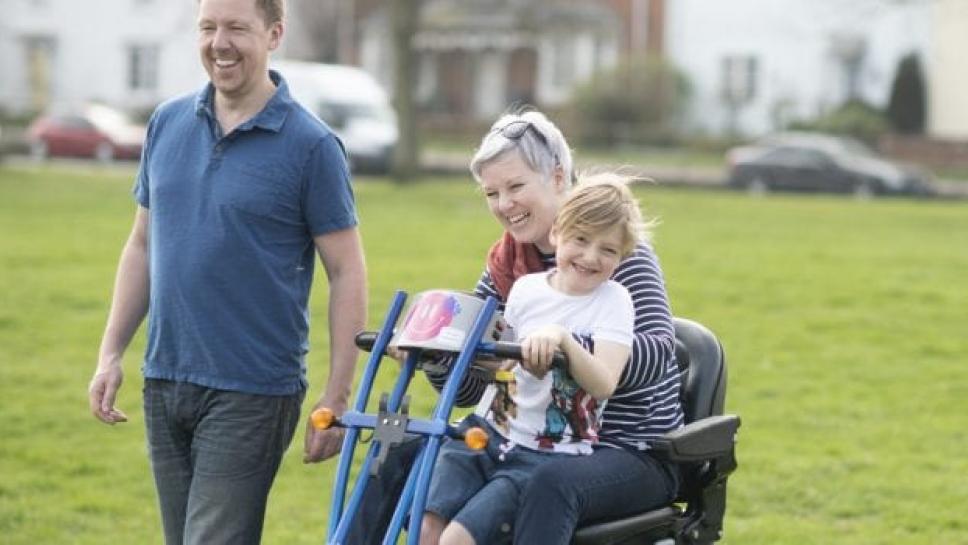
Muscular Dystrophy UK is pleased to launch an update of the Exercise advice for adults with muscle-wasting conditions document. The advice, which was originally produced in 2014, has been updated by some of the UK’s expert neuromuscular physiotherapists working with adults, and provides people with information about the importance of exercise, and how it can be safely carried out.
The guidance, launched in the middle of a Covid-19 Lockdown, will hopefully help many people who are struggling to access specialist neuromuscular clinicians and sports and exercise facilities like hydrotherapy pools, swimming pools and gyms.
The new advice emphasises the benefits that people with muscle-wasting conditions can experience by taking part in the correct type and level of physical activity for them and includes:
- examples of the benefits of exercise and activity
- how to get and stay active
- principles and priorities for safe and effective activity and exercise
- top tips
- links to additional resources and FAQs to support individuals to exercise and live well with their muscle-wasting condition
It is always important to remember that ‘exercising’ does not mean you have to be a member of a gym or go to a formal exercise class; simply increasing the amount you move around or being more physically active during the day can be just as important. Exercise can be focused on addressing a specific problem, or it can be used more generally to keep you fit and healthy.
The new exercise advice is designed as a useful starting point for someone beginning to exercise, making sure this is done in the correct way. This is especially important for those who are less experienced at doing exercise.
Further reading and resources on exercise and Lockdown:
Clinician perspective: Jo Reffin, Clinical Lead Physiotherapist in neuromuscular conditions at King’s College Hospital, London, and one of the authors of the exercise advice, has also written a blog with her thoughts on supporting people through the past year.
Personal perspective: Louise Halling who lives with limb girdle muscular dystrophy has written an important blog on her experience, frustrations and hopes for getting access to regular exercise again.
Exercise videos: Neuromuscular specialist physiotherapists at University College London Hospitals have made four Pilates videos for people in a sitting, lying, prone and standing position.
Marina Di Marco who is the Principal Neuromuscular Physiotherapist based in the Queen Elizabeth University Hospital in Glasgow has also shared an excellent workshop on seated physio with some examples of exercises to do at home.
Exercise video for family, friends and carers: Join in with seated exercises with MDUK President Gabby Logan. These exercises are not for people living with muscle-wasting conditions.
Safe access to exercise facilities used by people with a muscle-wasting condition: We want to ensure people with a muscle-wasting condition who rely on swimming pools, hydrotherapy pool or gyms to stay fit can access them as soon as it becomes safe. We are working with other charities to secure this and please complete our survey on the impact of lockdown on access to healthcare and support during the pandemic. We want to tell decision-makers what matters most to you.
Bobby Ancil, Head of Health Service and Campaigns at Muscular Dystrophy UK, said:
One of the greatest challenges for many people over the past year has been retaining muscle strength and staying fit and healthy. The Lockdown and the closure of exercise facilities has made this harder, which is why we are so pleased to launch this updated advice which is full of tips and ideas to help people stay as fit as they can.
Read the latest coronavirus information and advice and vaccine updates.
